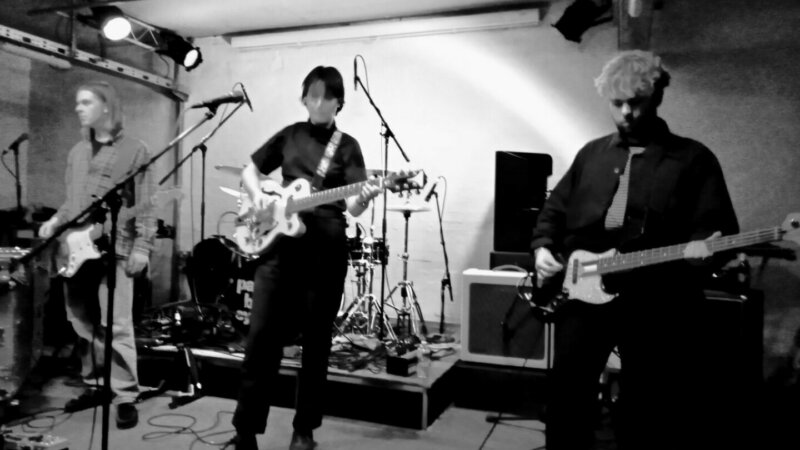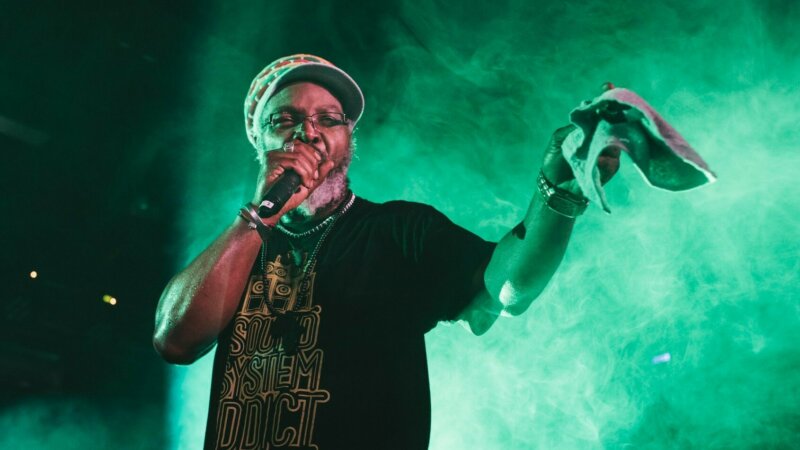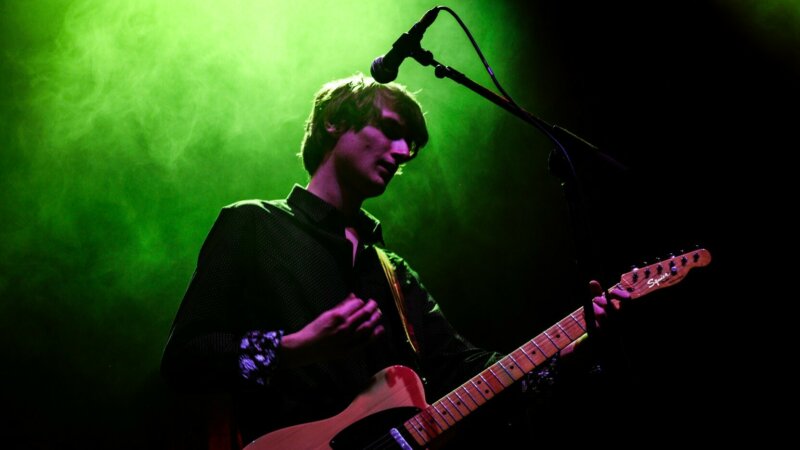Sound
The politics of hip-hop in Dakar, Senegal.
Sam Parkin spent three weeks in Dakar in September this year, conducting researching into the political role of hip-hop in Senegal. He met with professional and amateur rappers, as well as hip-hop fans, to get a holistic understanding of the influence of the genre. He is currently studying International History and Politics at the University of Sheffield.
"[In] the 'New Type of Senegalese', this is proof that they are beginning to have this initiative to have a new type of Senegalese: one who is not throwing papers in the dust in the street; the one who is not urinating in the street; the one who focuses on his own change."
"They", in this context, refers to the Y'en a Marre movement that is tearing through Senegalese political life. But the ambition outlined above in fact applies to a whole school of rap that has experienced an unprecedented resurgence in the last few years, and upholds a musical ideology of sorts that was set in motion in the early 1990s by their founding fathers, Positive Black Soul. The New Type of Senegalese (NTS) is an attempt at a mass psychological revolution by a network of Senegalese rappers, invoking the politicised hip-hop that so unsettled American elites when the likes of Public Enemy and KRS-One adopted an overtly political stance.
The Y'en a Marre movement seems to have been formed and driven into towering positions of authority through the gradual crashing together of several underlying cultural-historical tectonic plates. They are direct and uncontrollable responses to the hostile conditions of poverty, neo-colonialism and perceived political failure - all of which re-affirm their necessity.
Central to Senegalese rap's identity is a commitment to depicting the real life experience of the majority of poor, young men ahead of an imaginary world of bling and material wealth, as the hugely influential Positive Black Soul original member Duggy Tee summarised: "I'm not here to talk about my girls, my cars, my diamond rings... for me there are things that are more important than that". The more important thing he is referencing concerns depicting reality, not facade. It is to sensitise the young new generation to the political reality in which they operate. Matador also places emphasis on illustrating the realities of poverty in Dakar, and has brought attention to the corruption and inconsistencies in Senegal's rigid, traditional and hierarchical society in his lyrics. Original Y'en a Marre member Simon confirms this role as 'truth teller', arguing that "the basis of the rapper is just to inform people, to tell what happened, to sensitise [the] people". This process of sensitising and informing society from a point of influence demonstrates an interesting form of 'communication education' that is fundamentally political.
Another key way in which rappers are aiding youth education and social development is by getting involved in social projects. Matador is the most obvious example of this. Quite literally rising from rags to riches, he now expresses a profound debt to hip-hop for rescuing his life from abject poverty, and is repaying this in part by raising awareness about the positivity of hip-hop, but crucially through the creation and administration of the thriving Africulturban Centre.
The Africulturban Centre is 1,000 members strong. It not only provides space for artists, but also runs education programmes teaching aspiring artists how to complete the complex application forms for government grants - made more complex by the fact that most applicants are illiterate - and hosting live fundraising events and workshops. He has also started a free hip-hop education scheme, worked with NGOs to teach children in rural areas how to speak new languages, and projects supplying flood relief assistance.
Rappers such as Nigga Fatale and Free Style have worked in prisons and juvenile detention centres, teaching kids how to express themselves better through rap. Nigga Fatale's involvement was a condition of his recording contract, and Awadi has been continually redirecting his wealth into his recording complex and music business, while also creating an acclaimed hip-hop cultural festival, Senerap International, in 2003.
This pro-active social involvement has led to a feeling in some rappers that they are taking on "the role of the government". Simon claims on behalf of Y'en a Marre that in enrolling people to vote in elections - 400,000 new voters for the upcoming election in 2012 - they were performing a function that should have been the obligation of the government, while Daara J was enlisted to edit political speeches during the 2000 election and led a successful anti-corruption campaign. Awadi also states that "since 2000, people have accepted that rap has a big role in building democracy and freedom of speech" through speaking out on taboo subjects like maraboutic impunity, silence on the corruption of religion and speaking frankly to people of traditionally higher status.
"You are not supposed ever to tell persons of a higher status - because of age or social position - what you think of them or point out their shortcomings, not even in private. The rappers have broken this taboo because they do not wave for establishment recognition," explains Xouman of famed 90s rap group Pee Froiss, described by some in the West as a Senegalese Public Enemy. Claims by hip-hop fans that rappers were fundamentally 'revolutionaries' were played down by Matador, who countered that they profess no domestic political revolution or alternative vision; they merely seek to explain the truth about their society and inform the masses, furthering democratic development.
Simon, Thiat and Fou Malade seem to be doing little to dispel the notion that rappers are revolutionaries, as the Y'en a Marre movement continues to dictate political opinion. Originating out of a rapper-journalist feud in which both criticised each other for talking without practical action to back it up, the rappers took to the streets and have now galvanised areas of society as varied as marabouts and bankers against the government. This ultimately culminated in the regionally remarkable 23rd June riots this year, after which President Wade was unable to carry through his infamous legislative ambition of amending the constitution to allow him to run for a third term - the original source of the protests. The violent action of Y'en a Marre has proved divisive with Awadi, Duggy Tee and Nigga Fatale, who are all reluctant to condone their methods, but no-one I spoke to doubted the legitimacy of their goals.
Moreover, a continental political vision is an entirely different lyrical area that is focussed on by Awadi, Duggy Tee and Simon. Along with Awadi's examination of the colonial legacy and post-colonial pan-African politics in his documentary Presidents D'Afrique, and explaining the ways in which the French still play a role in Senegalese domestic politics, Y'en a Marre also has continental ambitions. Simon explained that similar movements were also cropping up in other West African countries. Music is generally accepted as a vital means to inform and unify people throughout Africa.
The ways that Senegalese rappers now form a central role in societal development - and have subsequently asserted themselves in business, voluntary projects, mass protest and political polemics - seems remarkable, if only for the plight of anything comparable in our own country. This difference in attitude towards the role of music in society is underlined by the passivity of British musicians and rappers on contentious events such as the expenses scandal, the phone-hacking scandal and banking crisis. Many journalists have talked about the 'death of the protest song' in Britain, and my experience in Senegal made clear that those journalists are in many ways correct. Maybe we can learn something from the Senegalese rappers currently co-ordinating political change in their country. )





